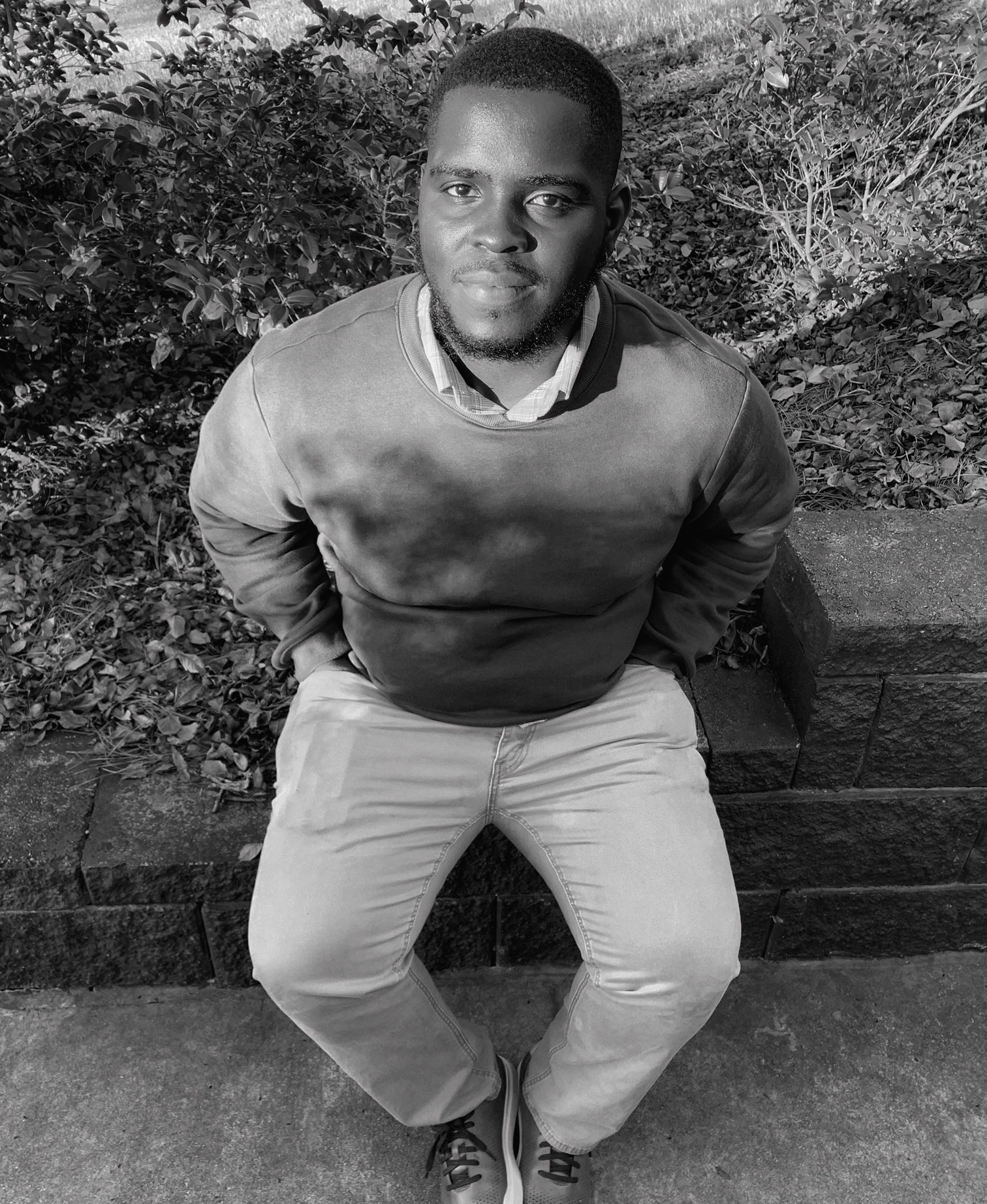Iris Barrios
Nick Sisk, Admissions Counselor in the School of Education, fears for the future of democracy because of cultural inequalities in classrooms and beyond.
Sisk was born and raised in Oxford, graduated from Ole Miss in 2021, majoring in Criminal Justice with a minor in Education. He prides himself on being a strong leader with mentoring skills, and he has a passion for higher education.
He bemoans that Mississippi schools lack enough funding to help students succeed. All of this threatens democracy.
“To me the future of democracy is cloudy. As technology grows, so does one’s ability to have a voice or platform to be heard or seen,” Sisk said, referring to the cultural and political divisions. One day our democracy may no longer exist as we know it today, he lamented.
Sisk realizes that one person can’t undo the divisions and inequalities that plague the country, but he uses his gifts to make a difference on the local level, whether through his job as admissions counselor, or in other areas of the academic community.
He is kind-hearted, passionate about life and work, and determined to help others be successful. It’s his welcoming personality that makes Sisk a hit with college students.
“I love working with college students and recruiting people from the graduate and undergraduate programs. I’m trying to learn to be on the students’ level.”
He honors learning about the ethnic and cultural identities of others. Sisk is also a member Phi Beta Sigma Fraternity, Inc., where he was President and Director of Education as an undergraduate, a role which spurred his interest in education as a field. While serving in this organization, he further developed leadership and mentoring skills.
Some people who inspired Sisk through his years in Oxford were his mother, Nikki, who he describes as a hardworking lady. “She always taught me right from wrong, and she just really made sure I was being successful and making the right decisions in life.”
Another key influence was his fraternity brother, Carl Tart, the first African American homecoming king at Ole Miss, who got him interested in higher education. They helped guide him in right and reasonable pathways, he said.
He also cites Ryan Upshaw, Assistant Dean of Student Services for the School of Engineering, and Brian Foster, Assistant Professor of Sociology and Southern Studies, advisors to his fraternity. “They set a great example for black excellence,” he said.
The presence of African Americans working in leadership roles on campus inspired him to become more of a leader and mentor. “They are all always there for me and teach me and help me out, even though they have a busy life of their own,” he said of them.
He learned to believe in himself over time.
Their impact on Sisk illustrates the role influencers can have, he said.
He points to the very limited job opportunities in surrounding counties, which produces low income and poverty.
Public schools are not funded correctly, he argues, and they have no resources as evidence of this. Money is not distributed evenly in the state, he adds.
The reason he knows this is because he worked in a non-profit mentoring organization, Spring Initiative in Clarksdale, and he could see the difference between the schools in the Delta and the Oxford school system.
This also led me to ask if he thinks the nation would ever unite.
No, he said, citing former President Trump’s treatment of immigrants and threats to build a wall on the southern border.
Our culture welcomes some, and excludes others, he said.
Sisk thinks that because Trump had the power to let others think that immigrants were the problem, immigrants were going to make the United States out to be a land populated with bad people.
All of this simply created divisions and suspicions, Sisk said.
Also, “Police brutality towards African Americans really divided us all up because we all kind of hate cops now, and most cops are white.”
These and other reasons have caused the nation be irreparably divided, he believes.
I asked Sisk if it was difficult growing up in Oxford as an African American.
Yes-and-no, he said, because he played football in high school and Holmes Community College, and the fans around him loved the team, so he felt loved. Still, racism came into play in high school because over half of the student population was white.
Sisk recalls once being blamed when a cell phone went missing in a classroom during his junior year at Oxford High School, and he was asked about it first, before anyone in the classroom, “and I was nowhere near that person.”
How have his political views have changed over the years, based on his life experiences?
The rise of Black Lives Matter, in part a response to police brutality, and especially the George Floyd case, all deepened his views.
He is far from a pessimist. Sisk enjoys working with others and bettering lives. “I love seeing people succeed in life,” he said.
Iris Barrios is a sophomore majoring in Integrated Marketing Communications.

